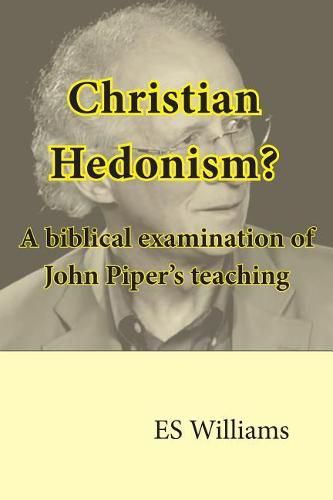Readings Newsletter
Become a Readings Member to make your shopping experience even easier.
Sign in or sign up for free!
You’re not far away from qualifying for FREE standard shipping within Australia
You’ve qualified for FREE standard shipping within Australia
The cart is loading…






Many people sense that there is something profoundly wrong with combining the Christian Faith with the philosophy of hedonism, but few people are able to explain why Christian Hedonism is a false doctrine. This short book sets out to evaluate John Piper’s teaching in the light of Scripture. We see how he amends the Westminster Shorter Catechism to say that ‘the chief end of man is to glorify God by enjoying Him forever’. We see how he creates a new commandment, ‘Delight yourself in the Lord’, from Psalm 37.4, and then tells Christians that the vocation of their lives is to seek maximum pleasure in God. We observe how he extols the worldly worship of a Passion Conference. We learn of his new definition of love as ‘holy, divine Eros’. We note how he cleverly ‘digs up’ Scripture to find a ‘happy God’. We see how Scripture is twisted to make the claim that the apostle Paul and the Lord Jesus Himself were Christian hedonists. This book provides clear evidence that antinomianism is the underlying error upon which Christian Hedonism is built.
$9.00 standard shipping within Australia
FREE standard shipping within Australia for orders over $100.00
Express & International shipping calculated at checkout
Many people sense that there is something profoundly wrong with combining the Christian Faith with the philosophy of hedonism, but few people are able to explain why Christian Hedonism is a false doctrine. This short book sets out to evaluate John Piper’s teaching in the light of Scripture. We see how he amends the Westminster Shorter Catechism to say that ‘the chief end of man is to glorify God by enjoying Him forever’. We see how he creates a new commandment, ‘Delight yourself in the Lord’, from Psalm 37.4, and then tells Christians that the vocation of their lives is to seek maximum pleasure in God. We observe how he extols the worldly worship of a Passion Conference. We learn of his new definition of love as ‘holy, divine Eros’. We note how he cleverly ‘digs up’ Scripture to find a ‘happy God’. We see how Scripture is twisted to make the claim that the apostle Paul and the Lord Jesus Himself were Christian hedonists. This book provides clear evidence that antinomianism is the underlying error upon which Christian Hedonism is built.